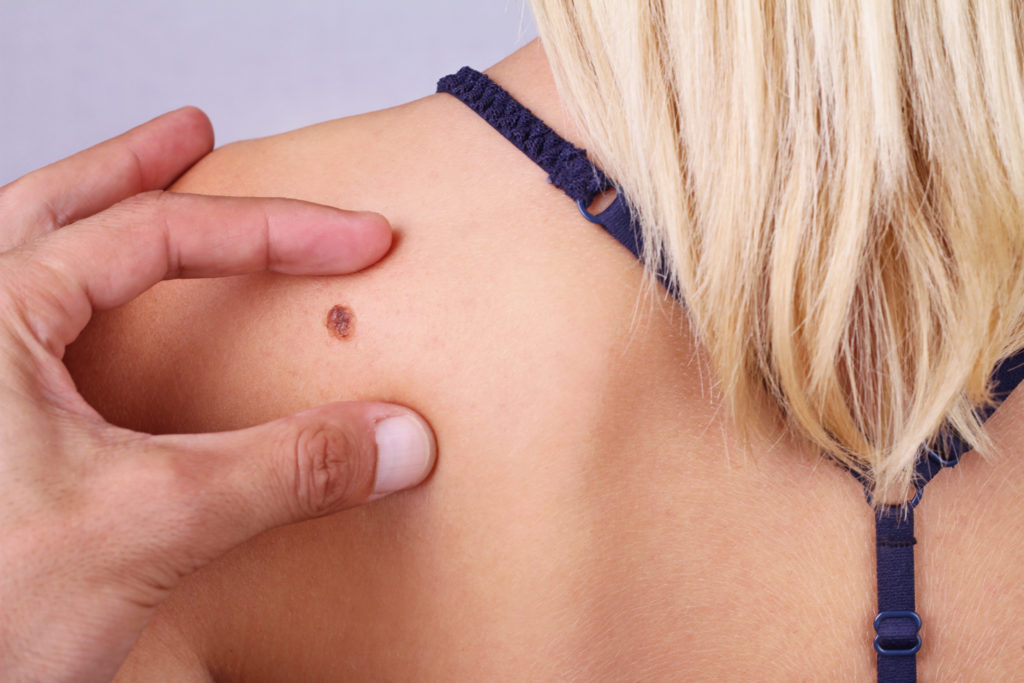Some cases of the common form of skin cancer known as cutaneous squamous cell carcinoma (cSCC) have been linked to the immunosuppressive medication azathioprine, according to a new study on mutational signatures of cancer published in the journal Nature Communications. The drug – which is sold under the brand name Imuran – is used to treat inflammatory bowel disease, arthritis and other autoimmune conditions.
Researchers have long known that azathioprine increases patients’ sensitivity to UVA light from the sun, however it’s link to the development of skin cancer is not fully understood. The new research adds weight to the claim that the drug may be involved in some cases of cSCC, which could change the way in which its prescribed to patients.
“We recommend all physicians give appropriate advice on UVA avoidance including year-round sun protection for their patients on azathioprine,” said Charlotte Proby, Professor of Dermatology in the School of Medicine at the University of Dundee. “It is important that sun protection, skin surveillance and early diagnosis/lesion removal are part of the routine management of patients on azathioprine.”
The small study conducted by Proby and her colleagues analyzed cSCC tumor samples collected from 37 patients, 29 of which were being given azathioprine as part of an immunosuppressive treatment program. The research team identified a new mutational signature – dubbed Signature 32 – which was associated with tumor samples from patients on azathioprine.
So, will these findings change the recommendations for patients taking the immunosuppressive medication?
“It’s important to protect your skin from the sun when it’s strong, especially if you burn easily or are taking medications which make you more sun-sensitive,” said Sophia Lowes, from Cancer Research UK. “The most effective protection is to spend time in the shade and cover up with a hat, long-sleeved top and sunglasses. For the bits you can’t cover, use sunscreen with at least four stars and SPF 15 or higher for protection against both UVA and UVB rays.”
Over 40,000 new cases of cSCC are diagnosed each year in the UK, which makes it one of the most common and costly forms of skin cancer. Despite the potential risks, azathioprine plays an important role in the management of certain conditions and is even given to patients to prevent organ rejection after they’ve undergone transplant surgery.
“Although patient numbers were small and these findings should be verified in a larger independent cohort, this molecular study provides a strong case for an association between this novel mutational signature and long-term azathioprine use,” said Professor Gareth Inman of the Cancer Research UK Beatson Institute and the University of Glasgow, and former member of the Dundee research team.












Join or login to leave a comment
JOIN LOGIN